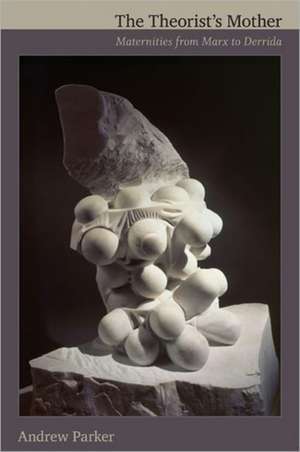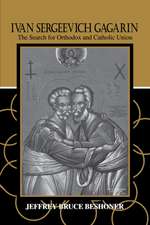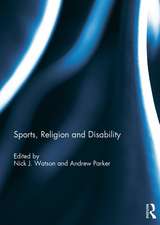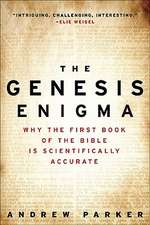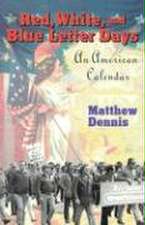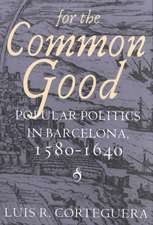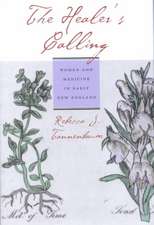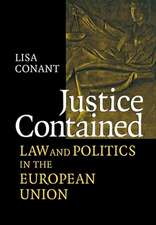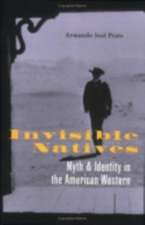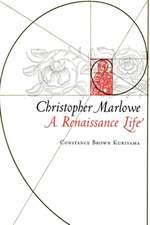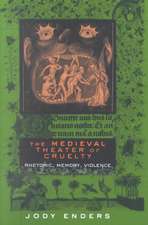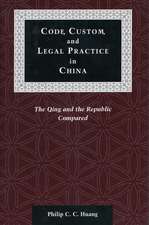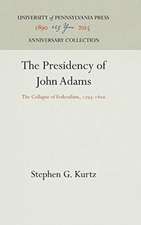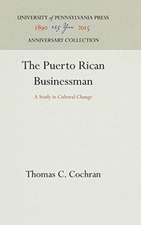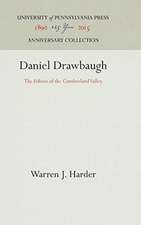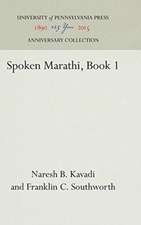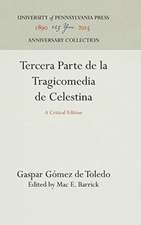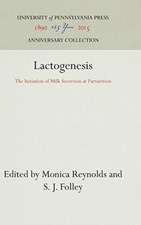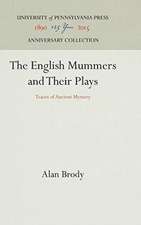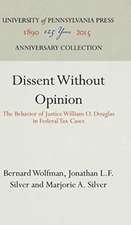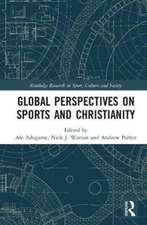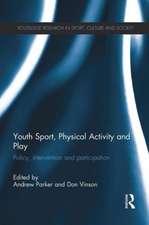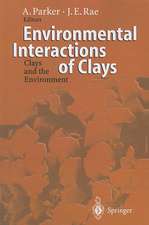The Theorist`s Mother
Autor Andrew Parkeren Limba Engleză Paperback – 22 mar 2012
Preț: 241.03 lei
Nou
Puncte Express: 362
Preț estimativ în valută:
46.12€ • 48.28$ • 38.39£
46.12€ • 48.28$ • 38.39£
Carte tipărită la comandă
Livrare economică 31 martie-14 aprilie
Preluare comenzi: 021 569.72.76
Specificații
ISBN-13: 9780822352327
ISBN-10: 082235232X
Pagini: 200
Dimensiuni: 176 x 227 x 12 mm
Greutate: 0.57 kg
Editura: MD – Duke University Press
ISBN-10: 082235232X
Pagini: 200
Dimensiuni: 176 x 227 x 12 mm
Greutate: 0.57 kg
Editura: MD – Duke University Press
Recenzii
"This fascinating and beautifully written book does for maternity what a good deal of theory, starting with Freud, has done for paternity. Andrew Parker shows that many members of the male theory canon have developed strategies to make the mother disappear. He investigates the role of mothers in philosophers lives and the treatment of mothers in their thought, shrewdly circling around issues of the maternal, the relation of biographical experience to theoretical articulation, and the nature and functioning of authority."--Jonathan Culler, author of The Literary in Theory
"Andrew Parker leads us from Derrida imagining his granddaughter as that philosopher hed like to have had as his mother to Barthes becoming his mothers mother. Along the way, we revisit the hated mothers of Nietzsche and Marx, the psychosomatic body of Parkers own mother, Pontalis droll image of the mother we spend a lifetime trying to change because we cannot change our mothers, and the originally ersatz mother. The mother becomes a figure of impossible origin: lacking original meaning, plural, split. The mothers status as natural may seem to have ceded to the technologically mediated mother, or to apparently new possibilitiesassisted reproduction, pregnant men, but Parker reminds us that the mother has never been natural or biological. As we move from the problem of reproducibility in Marxism and psychoanalysis, through translatability and the problematics of the mother tongue, ending with the pregnancy of Thomas Beatie, the figures of the literal mother has long since collapsed, the mother has never been natural, teleological or originalthe mother we meet with Andrew Parker is queered and invigoratingly plastic."--Penelope Deutscher, Northwestern University
"I found Parkers readings of Marx and Freud enjoyable and pleasingly intricate. . . . [T]his book is stimulating and provocative, and is well worth reading for all those interested in the relation between philosophy and maternity."--Alison Stone, Hypatia
"This fascinating and beautifully written book does for maternity what a good deal of theory, starting with Freud, has done for paternity. Andrew Parker shows that many members of the 'male theory canon' have developed strategies to make the mother disappear. He investigates the role of mothers in philosophers' lives and the treatment of mothers in their thought, shrewdly circling around issues of the maternal, the relation of biographical experience to theoretical articulation, and the nature and functioning of authority."--Jonathan Culler, author of The Literary in Theory "Andrew Parker leads us from Derrida imagining his granddaughter as that philosopher he'd like to have had as his mother to Barthes becoming his mother's mother. Along the way, we revisit the hated mothers of Nietzsche and Marx, the psychosomatic body of Parker's own mother, Pontalis' droll image of the mother we spend a lifetime trying to change because we cannot change our mothers, and the originally ersatz mother. The mother becomes a figure of impossible origin: lacking original meaning, plural, split. The mother's status as natural may seem to have ceded to the technologically mediated mother, or to apparently new possibilities - 'assisted' reproduction, pregnant men, but Parker reminds us that the mother has never been natural or biological. As we move from the problem of reproducibility in Marxism and psychoanalysis, through translatability and the problematics of the mother tongue, ending with the pregnancy of Thomas Beatie, the figures of the literal mother has long since collapsed, the mother has never been natural, teleological or original - the mother we meet with Andrew Parker is queered and invigoratingly plastic."--Penelope Deutscher, Northwestern University "I found Parker's readings of Marx and Freud enjoyable and pleasingly intricate... [T]his book is stimulating and provocative, and is well worth reading for all those interested in the relation between philosophy and maternity."--Alison Stone, Hypatia
"Andrew Parker leads us from Derrida imagining his granddaughter as that philosopher hed like to have had as his mother to Barthes becoming his mothers mother. Along the way, we revisit the hated mothers of Nietzsche and Marx, the psychosomatic body of Parkers own mother, Pontalis droll image of the mother we spend a lifetime trying to change because we cannot change our mothers, and the originally ersatz mother. The mother becomes a figure of impossible origin: lacking original meaning, plural, split. The mothers status as natural may seem to have ceded to the technologically mediated mother, or to apparently new possibilitiesassisted reproduction, pregnant men, but Parker reminds us that the mother has never been natural or biological. As we move from the problem of reproducibility in Marxism and psychoanalysis, through translatability and the problematics of the mother tongue, ending with the pregnancy of Thomas Beatie, the figures of the literal mother has long since collapsed, the mother has never been natural, teleological or originalthe mother we meet with Andrew Parker is queered and invigoratingly plastic."--Penelope Deutscher, Northwestern University
"I found Parkers readings of Marx and Freud enjoyable and pleasingly intricate. . . . [T]his book is stimulating and provocative, and is well worth reading for all those interested in the relation between philosophy and maternity."--Alison Stone, Hypatia
"This fascinating and beautifully written book does for maternity what a good deal of theory, starting with Freud, has done for paternity. Andrew Parker shows that many members of the 'male theory canon' have developed strategies to make the mother disappear. He investigates the role of mothers in philosophers' lives and the treatment of mothers in their thought, shrewdly circling around issues of the maternal, the relation of biographical experience to theoretical articulation, and the nature and functioning of authority."--Jonathan Culler, author of The Literary in Theory "Andrew Parker leads us from Derrida imagining his granddaughter as that philosopher he'd like to have had as his mother to Barthes becoming his mother's mother. Along the way, we revisit the hated mothers of Nietzsche and Marx, the psychosomatic body of Parker's own mother, Pontalis' droll image of the mother we spend a lifetime trying to change because we cannot change our mothers, and the originally ersatz mother. The mother becomes a figure of impossible origin: lacking original meaning, plural, split. The mother's status as natural may seem to have ceded to the technologically mediated mother, or to apparently new possibilities - 'assisted' reproduction, pregnant men, but Parker reminds us that the mother has never been natural or biological. As we move from the problem of reproducibility in Marxism and psychoanalysis, through translatability and the problematics of the mother tongue, ending with the pregnancy of Thomas Beatie, the figures of the literal mother has long since collapsed, the mother has never been natural, teleological or original - the mother we meet with Andrew Parker is queered and invigoratingly plastic."--Penelope Deutscher, Northwestern University "I found Parker's readings of Marx and Freud enjoyable and pleasingly intricate... [T]his book is stimulating and provocative, and is well worth reading for all those interested in the relation between philosophy and maternity."--Alison Stone, Hypatia
Notă biografică
Cuprins
Preface and Acknowledgments xi
Introduction: Philosophy's Mother Trouble 1
1. Mom, Encore: Rereading, Teaching, and "Maternal Divination" 29
Beware the Crocodile! 29
"Mom" 34
Lacan's Two Bodies 40
Do Not Read 45
"Maternal Divination" 54
2. History, Fiction, and "The Author of Waverley; or, Fathers and Sons in Marxist Criticism 57
Family Romances 57
The Prehistory of the Present 59
The History of the Father 68
Fictions: Of Paternity 74
"The Author of Waverley 80
3. Translating Revolution: Freud, Marx, and the Mameloshn 88
The Mother of Language 88
The Translator's Hand(s) 91
Philosophies of Translation 95
Forgetting the Mother Tongue 99
The Mameloshn 103
Coda: Other Maternities 111
Notes 117
Bibliography 149
Index 173
Introduction: Philosophy's Mother Trouble 1
1. Mom, Encore: Rereading, Teaching, and "Maternal Divination" 29
Beware the Crocodile! 29
"Mom" 34
Lacan's Two Bodies 40
Do Not Read 45
"Maternal Divination" 54
2. History, Fiction, and "The Author of Waverley; or, Fathers and Sons in Marxist Criticism 57
Family Romances 57
The Prehistory of the Present 59
The History of the Father 68
Fictions: Of Paternity 74
"The Author of Waverley 80
3. Translating Revolution: Freud, Marx, and the Mameloshn 88
The Mother of Language 88
The Translator's Hand(s) 91
Philosophies of Translation 95
Forgetting the Mother Tongue 99
The Mameloshn 103
Coda: Other Maternities 111
Notes 117
Bibliography 149
Index 173
Descriere
In this work, Andrew Parker undertakes a critical reconsideration of the frequently absent, or troubled, figure of the mother in theorists including Marx, Freud, Lacan, and Derrida. Parker argues that while all philosophers have mothers and the idea of birth makes frequent appearances in philosophy (theorists are said to give birth to schools of thought), mothers themselves are strangely absent. What accounts for this trouble with maternity, even in the work of some feminist theorists? Parker is a highly regarded critical theorist working with feminist and queer theory and this is a long-awaited book.
